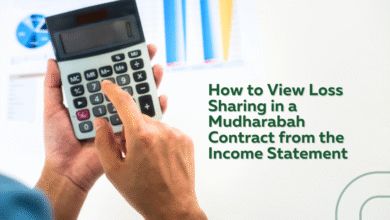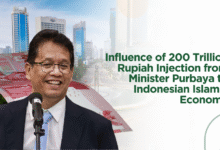Social Impact of Investing from an Islamic Perspective
In addition to pursuing financial gains social impact investing seeks to improve the environment and society. In response to significant issues like economic inequality, climate change and restricted access to healthcare and education this trend has accelerated recently on a global scale including in Indonesia. The Islamic viewpoint on investing becomes especially pertinent in this context because Islamic teachings place a strong emphasis on ethics social justice and the pursuit of blessings (barakah) in all forms of economic activity.
The Social Impact Investment Concept
Measurable benefits for society such as enhanced quality of life environmental preservation and inclusive development are the goals of social impact investments. This kind of investment covers a wide range of industries including social entrepreneurship, healthcare education and renewable energy. Apart from financial gain social investors are also interested in how their money can result in real improvements for society. Therefore success is measured not only by monetary gains but also by impact measurement which is a precise assessment of social and environmental effects. This method of investment is becoming more popular in Indonesia. Due to urgent societal issues like unemployment poverty and environmental degradation investors are now looking for financial solutions that have a positive social impact. In an effort to promote sustainable development goals a number of financial platforms and investment firms have started to offer impact-driven investment products.
Also read: Rules and Etiquette on Halal Investment for Blessed Wealth
Islamic Ethics in Investment and Social Justice
Islam holds that material wealth is a gift from Allah ﷻ and should be handled with care. Beyond establishing what constitutes halal or haram financial products Islamic economic principles place a strong emphasis on morality equity and social welfare. In the Quran Allah ﷻ states:.
“But seek, through that which Allah has given you, the home of the Hereafter; and [yet], do not forget your share of the world. And do good as Allah has done good to you.”
(Qur’an, Al-Qasas: 77)
According to this verse Muslims are urged to participate in economic endeavors while maintaining a strong sense of altruism and compassion. Therefore it goes against the spirit of Islamic teachings to invest only for ones own benefit while disregarding the impact on society. The Prophet Muhammad ﷺ added the following:
“The best of people are those who are most beneficial to others.”
(Hadith narrated by al-Ṭabarānī in Al-Mu’jamul-Awsath: 5783)
According to this hadith social benefit is a fundamental Islamic virtue. This prophetic lesson is practically reflected in investments that result in observable positive change such as the creation of jobs welfare improvements or environmental preservation.
Also read: The Urgency of Real Sector Investment in Islam
Social impact investing and Islamic Finance Combination
Islamic finance and social impact investing have a lot of room to grow together. Products like productive zakat green sukuk and waqf-linked investments can be effective means of funding sustainable and socially beneficial initiatives. Islamic financial institutions are starting to look into ways to match financial objectives with social goals in accordance with maqasid al-shariah or the higher objectives of Islamic law which include guarding wealth, religion, life, intellect and lineage.
This potential has also been acknowledged by international initiatives. To support the Sustainable Development Goals for instance the UNDP’s Istanbul Policy Center has advocated for the integration of impact investing and Islamic finance. Muslim-majority nations now have the chance to create ethical and inclusive investment ecosystems.
Also read: Islamic Green Investment: When Islamic Investment Meets Environmental Values
Creating an Ecosystem for Social Impact Investment within the Sharia Framework
The private sector, regulators, Islamic financial institutions and investor communities must work together to create a strong social impact investment ecosystem grounded in Islamic principles. Public confidence can be increased by regulatory frameworks that support accountability, transparency and quantifiable impact reporting. Furthermore it is imperative to educate the Muslim community about the significance of ethical and responsible investing. Islamic education sustainable agriculture public health and community-based microbusinesses are just a few examples of the fields in which Muslims can start investing on an individual basis. In this sense investing turns into a way to serve others and advance societal well-being which not only increases wealth but also brings one closer to Allah ﷻ.
Also read: Application of Maqashid Sharia in the Green Economy
In Conclusion
Islamic principles which place a strong emphasis on justice the common good and pursuing barakah in wealth are strongly aligned with social impact investing. Islam views wealth as a means of establishing a just and prosperous society not just for individual enjoyment. An ethically sound and divinely rewarded strategic step toward sustainable development is thus the integration of Islamic finance principles with impact investing strategies.

Let’s Visit, Zeed and join for halal investment with Zeed.
References
Better Society Capital. (n.d.). What is social impact investing? Retrieved from https://bettersocietycapital.com/information/what-is-social-impact-investing/
Investing.com. (2023). Investasi berdampak: Solusi strategis untuk menghadapi tantangan sosial dan lingkungan di Indonesia. Retrieved from https://id.investing.com/news/economy-news/investasi-berdampak-solusi-strategis-untuk-menghadapi-tantangan-sosial-dan-lingkungan-di-indonesia-2694705
Investopedia. (n.d.). Impact investing. Retrieved from https://www.investopedia.com/terms/i/impact-investing.asp
Investor.id. (2023). Investasi berdampak: Tak hanya cuan tapi juga punya efek sosial. Retrieved from https://investor.id/investory/385629/investasi-berdampak-tak-hanya-cuan-tapi-juga-punya-efek-sosial#goog_rewarded
Sharia Knowledge Centre. (2023). Etika ekonomi Islam. Retrieved from https://www.shariaknowledgecentre.id/id/news/etika-ekonomi-islam/
UNDP. (2021). Blending Islamic finance and impact investing for sustainable development goals. Retrieved from https://www.undp.org/policy-centre/istanbul/news/blending-islamic-finance-and-impact-investing-sustainable-development-goals
Our Indonesia. (2024). Investasi dan dampak sosial: Membangun keseimbangan antara keuntungan dan manfaat sosial. Retrieved from https://www.ourindonesia.com/lifestyle/85711717804/investasi-dan-dampak-sosial-membangun-keseimbangan-antara-keuntungan-dan-manfaat-sosial







